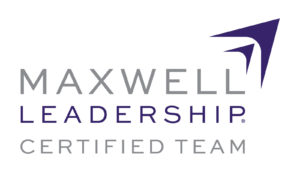
If you’re not making mistakes, then you’re not doing anything. I’m positive that a doer makes mistakes. – John Wooden
As an avid photographer (semi-professional) of many decades, I’ve come to learn a thing or two about mistakes. There’s nothing more satisfying than taking a good picture. Many factors come into play to make that happen, and oftentimes a little luck.
But on a typical photoshoot, it’s not uncommon to take 300-plus pictures in order to narrow down to 20 or 30 pictures that will pass muster for consideration in the final selection process.
Why do so many pictures not make the cut? In a word – mistakes. If the photoshoot was outdoor it could be lighting issues, eyes were closed, hair was a mess, the picture was not in focus, the composition wasn’t right, the 3-year-old quit cooperating, I hesitated too long on the shutter, and the list goes on.
Photography has been a rewarding passion for me over the years. But it’s also quite humbling. It humbles me when I step into the home of a family member or a friend and see their family portrait prominently placed and knowing I took it is humbling. Knowing the backstory of my countless mistakes in getting to that prominently placed picture is equally as humbling.
In leadership, as in photography, mistakes are bound to happen. Sometimes they are mistakes of our own creation while others are not. Either way, it’s part of a leader’s life.
My leadership mentor John Maxwell writes, “All leaders make mistakes. They are a part of life. Successful leaders recognize their errors, learn from them, and work to correct their faults.” And this is what separates successful leaders from the rest of the pack. Let’s look a little closer look.
All leaders make mistakes
This shouldn’t come as a surprise to anyone. Welcome to the human race. But in leadership, perhaps we need to ask what mistakes are we making. Are they the same ones over and over? If so, perhaps the lessons haven’t been learned. But that aside, as a leader, don’t be afraid to make mistakes. Making mistakes is a sign of progress and without making mistakes there will be no progress. Click To Tweet
Successful leaders recognize their mistakes and learn from them
This is the distinguishing characteristic of a strong leader. Being able to recognize one’s mistakes is essential. This involves humility and being grounded in reality. Perhaps you were just tone-deaf at the moment and made a poor decision. You didn’t take advice or listen to others before making a critical decision. Perhaps you didn’t delegate a task when you should have and it created issues you otherwise could have avoided. Successful leaders recognize this.
Successful leaders work to correct their mistakes
In order to be successful in your leadership, acknowledge that you make mistakes and also pour yourself into learning from them and making the necessary corrections. This is your work and obligation as a leader.
As a leader, there will always be something to work on and improve, but as you stick with it, you’ll be well on your way to significant growth as a leader.
©2023 Doug Dickerson
*To see more of my photography visit Facebook.com/dougdickersonphotography











 Leaders who are present in the moment and are actively listening stand to gain a lot of insight that would otherwise be missed. Leaders who are present are asking questions like: Currently, what is your greatest challenge? If you could change one thing, what would it be? As a team, do you believe that we are moving in the right direction? What do I need to know that I don’t? What are your growth goals and how can I help you achieve them?
Leaders who are present in the moment and are actively listening stand to gain a lot of insight that would otherwise be missed. Leaders who are present are asking questions like: Currently, what is your greatest challenge? If you could change one thing, what would it be? As a team, do you believe that we are moving in the right direction? What do I need to know that I don’t? What are your growth goals and how can I help you achieve them?